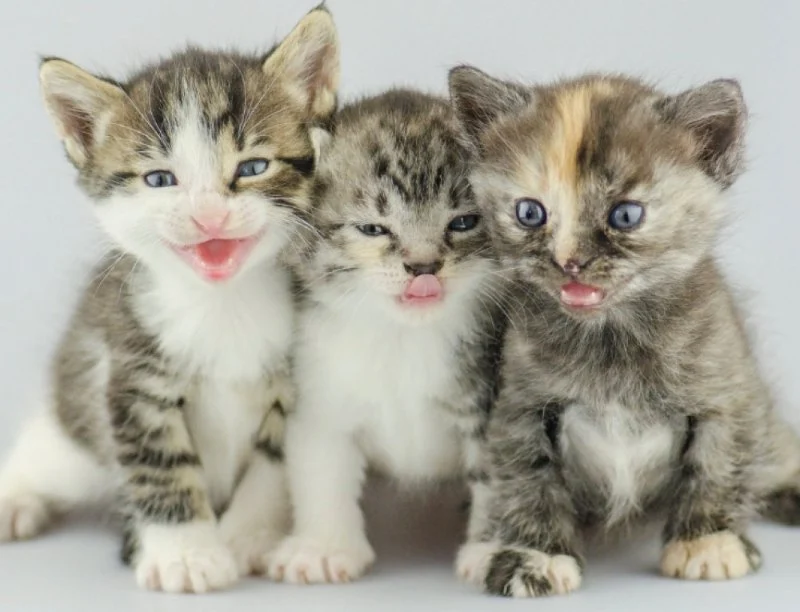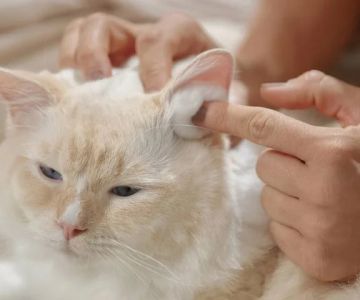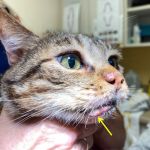
- What is Fading Kitten Syndrome?
- Signs of Fading Kitten Syndrome
- How to Prevent Fading Kitten Syndrome
- Caring for Kittens with Fading Kitten Syndrome
- Case Study: Successfully Saving a Kitten
What is Fading Kitten Syndrome?
Fading Kitten Syndrome (FKS) is a term used to describe a group of symptoms that result in the death of young kittens, usually within the first few weeks of life. The condition is characterized by a kitten failing to thrive, appearing weak, and often dying despite no apparent illness. FKS is most common in neonatal kittens that are under four weeks of age.

Natural Environment Aquatix
JacksonvilleDuval CountyFlorida
11018 Old St Augustine Rd Suite 103-104, Jacksonville, FL 32257, USA
1. Causes of Fading Kitten Syndrome
FKS is often caused by a combination of factors such as poor maternal care, infections, genetic defects, or environmental stresses. However, the exact cause is often unknown, making it a particularly challenging condition for caregivers. Kittens that are underfed, dehydrated, or have been exposed to cold conditions are at a higher risk of developing FKS.

Private Roots Veterinary PLLC
PeterboroughHillsborough CountyNew Hampshire
205 Concord St, Peterborough, NH 03458, USA
Signs of Fading Kitten Syndrome
Recognizing the early signs of Fading Kitten Syndrome is crucial for preventing the death of affected kittens. Here are some key indicators to watch for:
1. Weakness and Lethargy
One of the first signs of FKS is lethargy. A kitten that is not as active or responsive as its littermates may be suffering from FKS. It will often lack energy and struggle to nurse effectively.
2. Decreased Body Temperature
Kittens suffering from FKS often have lower-than-normal body temperatures. Newborn kittens need to be kept warm, and a drop in body temperature can be a sign that they are not being properly cared for or are struggling to maintain their warmth.
3. Weight Loss
Healthy kittens should gain weight steadily. If a kitten is losing weight or failing to thrive, it may be a sign of FKS. Monitor your kittens closely for any significant drops in weight.
How to Prevent Fading Kitten Syndrome
While it’s not always possible to prevent FKS, there are steps you can take to reduce the risk and improve the chances of survival for your kittens.
1. Ensure Proper Nutrition
One of the most important factors in preventing FKS is ensuring that kittens are receiving the right nutrition. If the mother cat is unable to nurse, provide a kitten formula that meets their nutritional needs. Make sure the kittens are fed frequently and are gaining weight as they should.
2. Keep Kittens Warm
Maintaining a proper temperature for kittens is essential for their survival. Use heating pads or warm blankets to provide additional heat. Be sure that the warmth is evenly distributed, as kittens are unable to regulate their own body temperature effectively.
3. Reduce Stress and Provide a Clean Environment
Minimize environmental stressors, such as loud noises, overcrowding, or other animals that may disturb the kittens. A clean, quiet, and safe environment is crucial for fostering healthy kittens. Regularly clean the bedding and surrounding area to prevent the spread of bacteria and infections.
Caring for Kittens with Fading Kitten Syndrome
If you notice signs of Fading Kitten Syndrome, immediate intervention is essential. Here’s how to provide care for affected kittens:
1. Provide Warmth
If you suspect that a kitten is suffering from FKS, immediately provide warmth by using a heating pad set on low or a warm water bottle wrapped in a towel. Ensure that the kitten is kept in a warm environment, as they are more vulnerable to hypothermia.
2. Feed Every Few Hours
Ensure that the kitten is being fed every 2-3 hours with kitten formula. If the kitten is not able to nurse on its own, you may need to use a syringe or bottle to feed it. Make sure that the formula is at the right temperature before feeding.
3. Consult a Veterinarian
If you are concerned about the kitten's health, it is crucial to consult with a veterinarian immediately. They can provide guidance on how to best care for the kitten and may be able to diagnose underlying issues contributing to the condition.
Case Study: Successfully Saving a Kitten
In one instance, a family adopted a mother cat and her litter of five kittens. Unfortunately, one of the kittens began to show signs of Fading Kitten Syndrome—weakness, lethargy, and a lack of interest in nursing. The owners immediately took action by keeping the kitten warm, feeding it with a syringe, and seeking veterinary help. With diligent care, the kitten survived and thrived, growing into a healthy adult cat.
This case highlights the importance of quick action and proper care when dealing with Fading Kitten Syndrome. If you notice any signs of the condition, don’t wait—taking immediate steps can help save a kitten's life.
For more tips on caring for kittens and dealing with common feline health issues, visit Omnia Pet for expert advice and quality products!







 REPTILE FACTORY4.0 (351 reviews)
REPTILE FACTORY4.0 (351 reviews) Afghanistan / Pakistan Ink Finger Prints for Passports3.0 (2 reviews)
Afghanistan / Pakistan Ink Finger Prints for Passports3.0 (2 reviews) Petco4.0 (1297 reviews)
Petco4.0 (1297 reviews) Oaks Veterinary Urgent Care4.0 (100 reviews)
Oaks Veterinary Urgent Care4.0 (100 reviews) VIP Petcare Vaccination Clinic0.0 (0 reviews)
VIP Petcare Vaccination Clinic0.0 (0 reviews) Petco4.0 (867 reviews)
Petco4.0 (867 reviews) How to Tell if Your Kitten is Bonding with You
How to Tell if Your Kitten is Bonding with You Why Does My Kitten Bite My Fingers? Play Aggression Explained
Why Does My Kitten Bite My Fingers? Play Aggression Explained How to Help a Kitten with a Cold Sore: Essential Tips for Cat Owners
How to Help a Kitten with a Cold Sore: Essential Tips for Cat Owners How to Clean a Fish Tank Without Stressing Your Fish | Omnia Pet Guide
How to Clean a Fish Tank Without Stressing Your Fish | Omnia Pet Guide The Best Weight Management Diets for Overweight Cats: Expert Tips and Recommendations
The Best Weight Management Diets for Overweight Cats: Expert Tips and Recommendations Signs of Worms in Dogs and How to Get Rid of Them: A Guide for Pet Owners
Signs of Worms in Dogs and How to Get Rid of Them: A Guide for Pet Owners